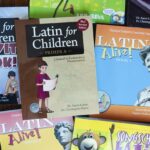A solid foundation in science is crucial for young learners. First grade is a pivotal year for introducing fundamental scientific concepts and fostering a lifelong curiosity about the world. But what exactly do first graders learn in science? This article explores the key topics and skills covered in a typical first-grade science curriculum.
First-grade science aims to build a basic understanding of core scientific principles across various branches of science, including:
Core Science Topics in First Grade
Life Science
- Living vs. Non-Living Things: Students learn to differentiate between living organisms (plants and animals) and non-living objects. They explore the characteristics that define life, such as growth, reproduction, and the need for food and water.
- Plant Life: Basic plant parts (roots, stems, leaves, flowers) and their functions are introduced. Students learn about the plant life cycle and how plants obtain energy through photosynthesis (in simple terms). They might also conduct simple experiments like growing a bean in a jar.
- Animal Life: Children learn about different animal groups (mammals, birds, insects, fish, reptiles, and amphibians) and their habitats. They explore animal diets, life cycles, and adaptations.
Physical Science
- States of Matter: Solids, liquids, and gases are introduced, along with their properties. Simple experiments, like melting ice or observing water vapor, help solidify understanding.
- Energy: Basic concepts of light and sound energy are explored. Students learn about different light sources and the properties of sound (loudness, pitch). They might experiment with making different sounds or observing how light travels.
- Magnets: Children explore the properties of magnets and learn about attraction and repulsion. Hands-on activities with magnets and various materials allow for exploration and discovery.
Earth and Space Science
- The Solar System: Students learn about the Sun, planets, Moon, and stars. They explore the concept of day and night and the Earth’s rotation.
- Weather: Different weather types (sunny, rainy, cloudy, snowy) and the water cycle are introduced. They might learn about different types of clouds or keep a simple weather chart.
- Seasons: The four seasons and their characteristics are explored. Discussions might revolve around changes in weather, plant life, and animal behavior during different seasons.
Developing Scientific Skills
Beyond specific scientific content, first grade emphasizes the development of essential scientific skills:
- Observation: Students are encouraged to use their five senses to gather information about the world around them.
- Asking Questions: Cultivating curiosity and the ability to formulate questions about natural phenomena is a key focus.
- Making Predictions: Children learn to make educated guesses about what might happen in a simple experiment.
- Simple Experiments: Hands-on activities and experiments allow students to test their predictions and draw conclusions.
- Communication: Sharing observations and findings with others through drawings, verbal explanations, and simple charts is encouraged.
Conclusion
First-grade science lays the foundation for future scientific learning. By exploring fundamental concepts in life, physical, and earth sciences, and by developing essential scientific skills, students build a strong base for a deeper understanding of the world around them. This early exposure to scientific inquiry fosters critical thinking, problem-solving abilities, and a lifelong appreciation for science.
